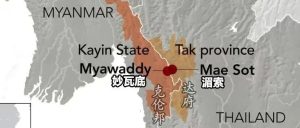|参考资料
resource:Patch
hyperlink:http://archives.neohapsis.com/archives/bugtraq/2001-02/0267.html
resource:Patch
hyperlink:http://www.caldera.com/support/security/advisories/CSSA-2001-009.0.txt
resource:
hyperlink:http://www.redhat.com/support/errata/RHSA-2001-013.html
resource:
hyperlink:http://www.securityfocus.com/bid/2364
resource:
hyperlink:https://exchange.xforce.ibmcloud.com/vulnerabilities/6079
hyperlink:http://archives.neohapsis.com/archives/bugtraq/2001-02/0267.html
resource:Patch
hyperlink:http://www.caldera.com/support/security/advisories/CSSA-2001-009.0.txt
resource:
hyperlink:http://www.redhat.com/support/errata/RHSA-2001-013.html
resource:
hyperlink:http://www.securityfocus.com/bid/2364
resource:
hyperlink:https://exchange.xforce.ibmcloud.com/vulnerabilities/6079
相关推荐: XShisen ‘-KCONV’ Local Buffer Overflow Vulnerability
XShisen ‘-KCONV’ Local Buffer Overflow Vulnerability 漏洞ID 1099405 漏洞类型 Boundary Condition Error 发布时间 2003-10-06 更新时间 2003-10-06 CV…
© 版权声明
文章版权归作者所有,未经允许请勿转载。
THE END
喜欢就支持一下吧
![图片[1]-Linux sysctl()核内存读取漏洞-安全小百科](https://p0.ssl.qhimg.com/dr/29_50_100/t01bbbb9ac447dabd6a.png) CVE编号
CVE编号
![图片[2]-Linux sysctl()核内存读取漏洞-安全小百科](https://p0.ssl.qhimg.com/dr/29_150_100/t01cd54df57948e31ea.png) CNNVD-ID
CNNVD-ID
















